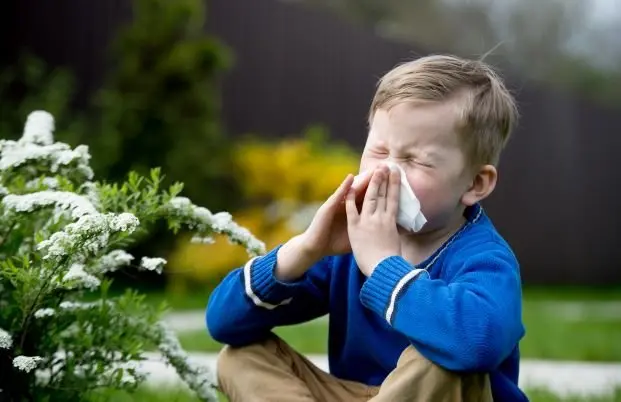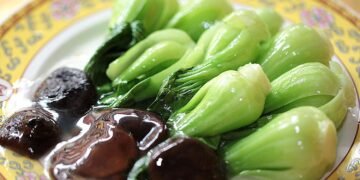1. Introduction to Summer Allergies
Summer brings outdoor activities and blooming landscapes, but for many, it also means dealing with seasonal allergies. As temperatures rise, so does the pollen count and other allergens, leading to symptoms that can affect quality of life. Learning to identify summer allergy triggers, as well as understanding how to prevent and treat symptoms, can make a significant difference for allergy sufferers.
2. Common Causes of Summer Allergies
The main causes of summer allergies are environmental, with some common triggers including:
• Pollen: Grass and weed pollen are abundant in summer and often peak, triggering respiratory and skin reactions.
• Mold Spores: Mold grows rapidly in warm, humid conditions, often found on damp surfaces indoors or in areas with standing water outdoors.
• Dust Mites: These microscopic creatures thrive in warm, humid environments, with summer temperatures accelerating their activity indoors.
• Insect Bites and Stings: Certain insects, like bees, wasps, and mosquitoes, are active in summer. Some people have severe allergic reactions to their bites or stings.
• Air Pollution: Summer heat intensifies pollution levels, particularly ozone, aggravating respiratory issues for allergy sufferers.
3. Typical Symptoms of Summer Allergies
Summer allergy symptoms often overlap with those experienced in other seasons. The most common symptoms include:
• Respiratory Issues: Sneezing, nasal congestion, coughing, wheezing, and shortness of breath.
• Eye Symptoms: Itchy, red, watery eyes, sometimes leading to conjunctivitis.
• Skin Reactions: Rashes, hives, or itching, often as a result of pollen, insect bites, or mold.
• General Fatigue: For many, allergies can cause fatigue and mental fog, affecting daily activities.
4. Preventative Measures
To reduce the risk of summer allergy symptoms, preventive strategies are key:
• Monitor Local Pollen Counts: Use weather or allergy-tracking apps to check pollen levels and limit outdoor activity during peak times, often mid-morning or evening.
• Keep Windows Closed: Use air conditioning to keep cool instead of opening windows, which allows pollen to enter your home.
• Clean Air Filters: Regularly change air filters in your home and car to improve indoor air quality.
• Shower After Outdoor Activity: Pollen can stick to hair, skin, and clothes, so showering after being outdoors helps reduce exposure.
• Use Sunglasses and Hats: These can help shield your eyes and hair from pollen when you’re outside.

5. Treatment Options
For managing symptoms, several treatment options are available:
• Antihistamines: Over-the-counter or prescription antihistamines can relieve sneezing, itching, and nasal symptoms.
• Nasal Sprays: Steroid nasal sprays reduce inflammation in the nasal passages, helping alleviate congestion and discomfort.
• Decongestants: Oral or nasal decongestants can provide temporary relief for congestion but should be used with caution to avoid dependence.
• Allergy Immunotherapy: For severe allergies, immunotherapy (allergy shots) may be an option, gradually building immunity to allergens.
• Natural Remedies: Saline nasal rinses and herbal teas, like peppermint or chamomile, can provide gentle relief for mild symptoms.
6. Dietary and Lifestyle Tips
Maintaining a healthy lifestyle and making dietary adjustments can further strengthen the body’s response to allergens:
• Anti-inflammatory Foods: Incorporate foods high in antioxidants, such as berries, leafy greens, and turmeric, to reduce inflammation and strengthen the immune system.
• Stay Hydrated: Drinking plenty of water helps keep mucus thin and eases congestion.
• Regular Exercise: Exercise boosts immunity but should be done indoors on high-pollen days to avoid triggering symptoms.
• Limit Alcohol and Caffeine: These can dehydrate the body and exacerbate certain allergy symptoms.
• Consider Probiotics: A healthy gut microbiome supports immune function and may lessen allergic responses.
7. Managing Summer Allergies for Different Age Groups
Children
• Mild Antihistamines: Use children-specific antihistamines as directed by a pediatrician.
• Develop Healthy Habits: Teach kids to wash hands, avoid rubbing eyes, and wear sunglasses outdoors to reduce pollen exposure.
Adults
• Effective Symptom Management: Adults may require a combination of antihistamines, nasal sprays, and decongestants to control symptoms, depending on their severity.
• Healthy Sleep Routine: Fatigue is a common allergy symptom, so maintaining a good sleep schedule can help reduce its impact.
Seniors
• Medication Caution: Some seniors are sensitive to antihistamines and may experience side effects like drowsiness or dizziness.
• Indoor Air Quality: Use air purifiers to improve indoor air quality, especially for seniors with limited mobility.
8. Conclusion
Summer allergies can be challenging, but with the right prevention and treatment plan, it’s possible to enjoy the season with fewer disruptions. Monitoring allergens, maintaining a clean environment, using effective treatments, and making healthy lifestyle choices can all contribute to managing summer allergies. By following these strategies, allergy sufferers can maximize their enjoyment of the sunny season without compromising their health.










































